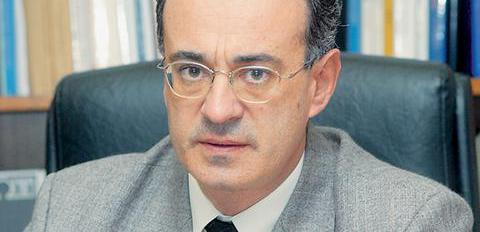Alternate Finance Minister Dimitris Mardas’s forecast for the implementation of an “inflow-outflow” monitoring system across the fuel market’s entire spectrum by the end of this year, a move aiming to counter illicit fuel trade, is overambitious and unrealistic, market authorities have noted. At least one year is needed for its full expansion, officials believe.
Besides linking petrol station trading activity with a ministry data system as a means of cross-examining trade, the government’s plan for full implementation throughout the entire market entails also applying the ‘inflow-outflow” system to fuel transportation trucks and ships, and fuel storage facilities, including ones maintained by the power utility PPC, the armed forces, police, and fire brigade.
The alternate finance minister’s intentions are on the right track. However, if the plan is to be actualized, an adequate number of suppliers and installers will be needed, as will a managerial body to coordinate several ministries involved in the overall effort. This would help avoid the system’s lack of progress made under the country’s previous administration led by former Prime Minister Antonis Samaras. At present, the amount of installers commissioned for the task is inadequate, while there are no plans for setting up an interministerial coordinating body.
Besides being ordered and installed, the new tracking systems also need to be connected to the Finance Ministry’s General Secretariat for Information Systems, which is the effort’s ultimate objective.
Despite being legislated in 2012, progress of the “inflow-outflow” system has been particularly slow. Of some 5,500 petrol stations operating throughout Greece, only 1,908 are continuing to regularly supply the ministry’s General Secretariat for Information Systems with their trading data, or fuel amounts purchased and sold, according to current information posted on the general secretariat’s website.
“Essentially, the new [Alexis] Tsipras [led] government is beginning its effort to counter fuel smuggling the wrong way round. Rather than first take care of completing the connection process of petrol stations to the system, it has declared an intention to expand and install it throughout the entire market without having ensured the means or a plan to achieve this,” a fuel market authority noted in comments to energypress yesterday.
Up until a couple of months ago, the new government had claimed tax evasion generated by fuel smuggling amounted to 1.5 billion euros per year, but has now lowered the figure to between 200 million euros and 450 million euros.
Having raised wider expectations of success in areas where the previous administration failed, the new government not only faces the challenge of achieving state revenue objectives set by itself, but must act fast so that the measures may begin yielding results within the current year. Market officials highly doubt whether this is feasible.
As for the fuel smuggling front, the government will need to move fast to have set up protective measures by October, when heating fuel trading activity begins ahead of next winter.





